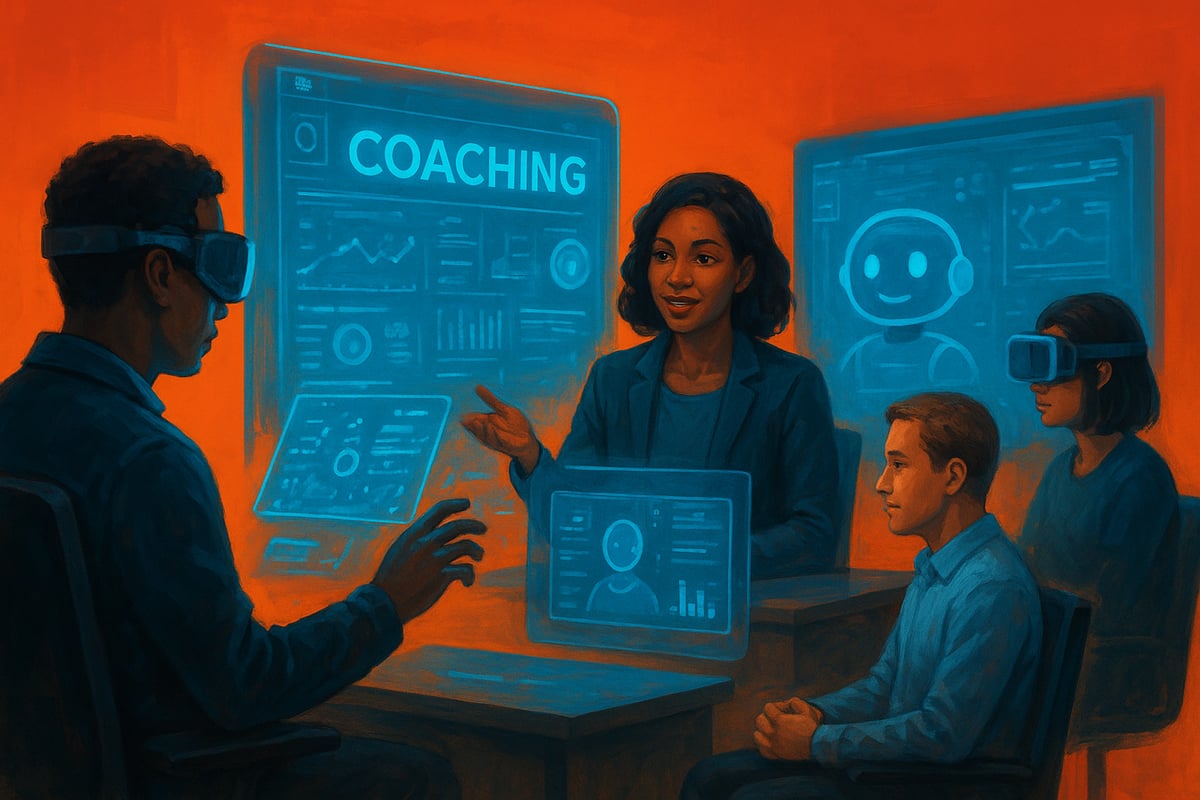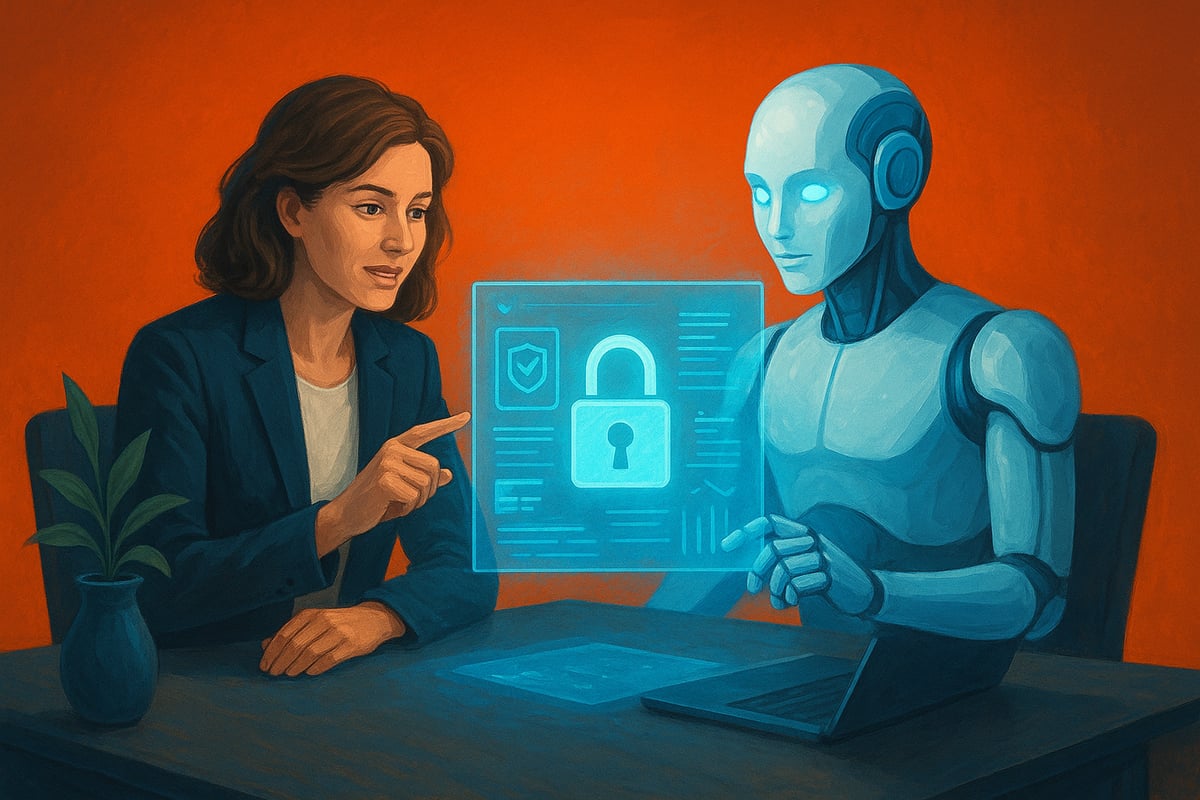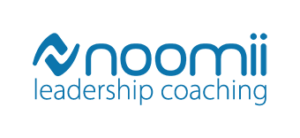Life Coaches and AI: The Essential Guide for 2025
Imagine a future where human intuition and artificial intelligence unite, transforming the way we pursue personal growth. In this new era, the demand for life coaches is skyrocketing, with the global coaching industry on track to surpass $20 billion by 2025.
As technology evolves, so does the partnership between life coaches and AI. These advancements are changing how coaches and clients interact, set goals, and track progress, leading to more measurable outcomes.
Integrating AI tools with coaching unlocks a new level of personalization, accountability, and efficiency. Platforms like Accountability Now demonstrate how technology can boost client engagement and goal achievement.
This essential guide explores how life coaches and AI are converging in 2025, what this means for both coaches and clients, and the practical steps you can take to succeed.
You will discover the evolution of coaching, the latest AI-powered tools, ethical considerations, integration strategies, and the future trends shaping this dynamic field.
The Evolution of Life Coaching: From Human Insight to AI Integration
Life coaches and ai are redefining the coaching landscape, but it all began with the power of human connection. Traditional life coaching centered on empathy, active listening, and fostering meaningful behavioral change. Coaches built trust and unlocked potential through deep conversations, helping clients achieve clarity and direction.
As the profession grew, so did its impact. According to life coaching industry growth statistics, the global coaching market has expanded rapidly, with more clients seeking guidance each year. Early on, technology entered the scene with digital scheduling, client management systems, and online assessments, making coaching more accessible and organized.
The next big leap came with data-driven methods. Life coaches and ai started working together as analytics enabled coaches to track progress and provide timely feedback. The introduction of chatbots, predictive analytics, and tailored content transformed engagement. For example, AI-driven platforms have boosted client engagement by 30% compared to traditional approaches.
Even with these advances, the human element remains at the heart of the process. AI does not replace the unique intuition and empathy that skilled coaches bring. Instead, it enhances their capacity to keep clients accountable and accelerate goal achievement. Many professionals, including those at Accountability Now, report that integrating AI leads to higher client satisfaction and faster results. The future belongs to those who blend the strengths of life coaches and ai, creating a partnership that delivers measurable growth and meaningful outcomes.

AI-Powered Tools and Platforms Transforming Life Coaching
The landscape of life coaches and ai is rapidly evolving, offering a wide range of innovative tools that enhance both the coaching process and the client experience. These advancements are making it easier than ever for coaches to deliver impactful, personalized support at scale.

Types of AI Tools Used by Life Coaches
Today, life coaches and ai platforms utilize an impressive toolkit to streamline coaching and maximize client outcomes. Common tools include:
- AI chatbots for 24/7 motivational support and quick Q&A
- Machine learning algorithms for custom goal tracking and smart reminders
- Natural language processing to analyze session transcripts and monitor emotional trends
- Virtual reality paired with AI for immersive coaching simulations
- Automated scheduling and digital assistants, reducing manual admin tasks
By leveraging these solutions, life coaches and ai practitioners can serve more clients efficiently, freeing up valuable time for deeper, high-impact conversations.
Real-World Examples and Case Studies
Leading platforms such as BetterUp and CoachAccountable have integrated life coaches and ai features, driving measurable improvements. For example, AI-driven feedback loops have increased client retention by 25 percent, while AccountabilityNow.net’s progress tracking uses AI to keep clients on track.
A recent industry survey found that 60 percent of clients prefer hybrid coaching, combining human connection with AI-powered insights. These real-world examples show how life coaches and ai together boost satisfaction and help practices scale.
Benefits and Limitations of AI in Coaching
Integrating life coaches and ai brings notable benefits: scalability, personalization, instant insights, and lower operational costs. Coaches report spending 20 percent more time on high-value client work, as AI handles repetitive tasks.
However, there are limitations, such as reduced empathy, potential algorithmic bias, and privacy challenges. For a deeper exploration of these dynamics, see this resource on AI integration in coaching practices. The most effective strategies blend the strengths of both AI and human intuition for optimal results.
Ethical Considerations and Data Privacy in AI-Driven Coaching
Ethics and privacy are at the heart of the relationship between life coaches and ai. Clients trust coaches with sensitive personal information, so protecting confidentiality is essential as AI becomes more integrated into coaching practices.
Data security risks are a real concern. AI-driven platforms can be vulnerable to breaches, as seen in other industries. Coaches must select secure tools and ensure robust encryption, access controls, and compliance with regulations like GDPR.
Transparency is equally important. Life coaches and ai practitioners should clearly inform clients about how AI will be used, what data is collected, and who has access. This openness builds trust and sets the stage for ethical collaboration.
Another critical aspect is algorithmic bias. AI systems can unintentionally reinforce stereotypes or exclude certain groups. Regular audits and diverse data sets help ensure fairness and inclusivity in coaching algorithms.
To navigate these challenges, many leading organizations have released frameworks for ethical AI in coaching. For a deeper dive into these principles, see the Ethical guidelines for AI in coaching, which highlight the importance of transparency, accountability, and human-AI partnership.
Ultimately, coaches who prioritize ethics and data privacy will maintain their credibility and client trust. Recent surveys show that 70% of clients expect full disclosure about AI involvement, making ethical practices a necessity for success.

How Life Coaches Can Successfully Integrate AI: A Step-by-Step Guide
Adopting AI can seem daunting, yet with a clear process, life coaches and ai integration becomes both practical and rewarding. Here is a step-by-step guide to help you navigate this transformation and future-proof your coaching practice.

Step 1: Assess Your Practice’s Needs and Tech Readiness
Begin by auditing your current workflow. Identify repetitive tasks, client pain points, and opportunities for automation. Survey clients to gauge their openness to digital experiences. This evaluation ensures the integration of life coaches and ai aligns with actual needs, not just trends.
Step 2: Research and Select the Right AI Tools
Explore leading platforms designed for coaching. Compare features like automation, analytics, and data security. Choose tools that match your values and approach. For further insights on staying relevant as technology advances, see making your coaching practice indispensable.
Step 3: Train and Upskill for AI Collaboration
Invest in learning the basics of AI, including platform-specific training and ethical considerations. Attend workshops, webinars, or online courses focused on coaching with AI. This ensures life coaches and ai work together seamlessly, enhancing client results.
Step 4: Communicate and Set Expectations with Clients
Clearly explain how AI will support your sessions. Address any concerns about privacy, data use, or the importance of the human touch. Draft a transparent AI usage policy so clients feel informed and secure.
Step 5: Measure Impact and Iterate
Establish clear KPIs such as client satisfaction, retention rates, or session outcomes. Use AI analytics to monitor progress and gather feedback. Adjust your approach based on these insights, ensuring your life coaches and ai strategy delivers measurable value.
The Future of Life Coaching and AI: Trends to Watch in 2025
The landscape for life coaches and AI is rapidly evolving, shaping a future where technology and human insight work hand in hand. In 2025, expect a surge of innovation that will redefine coaching experiences for both professionals and clients.
Here are the top trends transforming life coaches and AI in 2025:
- Hyper-personalized coaching: AI-driven insights will enable tailored coaching journeys, adjusting in real-time to each client's unique goals and behaviors.
- Wearables and biometric integration: Devices will track sleep, stress, and activity, giving coaches holistic data to support client growth.
- Voice assistants and conversational AI: Seamless, on-demand support will become standard, making accountability more accessible than ever.
- AI-powered group coaching: Technology will scale mastermind sessions and peer accountability, as explored in group coaching and technology trends.
- Predictive analytics: AI will identify at-risk clients before disengagement, helping coaches intervene proactively.
- Business investment: 80% of coaching businesses plan to invest in AI by 2025, signaling a shift toward tech-enabled service delivery.
As these trends take hold, life coaches and AI will become inseparable partners. Those who embrace this evolution will unlock new levels of client satisfaction and business growth. Human intuition, combined with AI-powered efficiency, will set the gold standard for transformative coaching.
For coaches seeking to stay ahead, leveraging platforms such as Accountability Now can provide the competitive edge needed in this data-driven era.
Frequently Asked Questions About Life Coaches and AI
Curious about the intersection of life coaches and AI? Here are answers to the most common questions from both coaches and clients navigating this evolving landscape.
Will AI replace human life coaches in 2025?
No, AI will not replace the unique value that human coaches provide. AI can automate tasks, support motivation, and deliver insights, but empathy and intuition remain essential. Learn more about the benefits and roles of life coaches to understand why the human element is irreplaceable.
How do life coaches and AI work together to boost accountability?
AI-powered platforms can automate reminders, track client progress, and provide real-time feedback. This partnership helps clients stay on target while allowing coaches to focus on meaningful conversations.
Are there privacy risks with AI-driven coaching tools?
Yes, data privacy is a key concern. Coaches should use secure, GDPR-compliant platforms and be transparent with clients about how their data is collected and used.
What are the main benefits of integrating AI into coaching practices?
AI delivers scalability, personalization, and data-driven insights. With life coaches and AI working together, coaches can serve more clients and spend more time on high-value coaching.
How can I choose the right AI platform for my coaching business?
Evaluate features, security, and alignment with your coaching style. Seek platforms offering robust analytics, user-friendly interfaces, and strong privacy protections.
Can you give examples of successful AI integration in coaching?
Platforms like AccountabilityNow.net use AI-enhanced progress tracking to improve results. Many coaches report higher client engagement and retention through hybrid AI-human models.
Will AI impact job prospects for life coaches?
AI is creating new opportunities. Coaches who embrace technology are positioned to thrive as demand grows for personalized, tech-enabled coaching.
How do I start integrating AI into my coaching workflow?
Begin by assessing your needs and researching tools that fit your practice. Consider AI ideas for small business coaching for practical steps and inspiration.
Why is ongoing learning important in an AI-driven coaching landscape?
Continuous learning helps coaches adapt to new tools, address ethical issues, and deliver the best results for clients.
Who is Don Markland?
Don Markland is an executive coach and CEO of Accountability Now, specializing in leadership and performance coaching. Discover more at https://accountabilitynow.net/.




Leave a Reply
Want to join the discussion?Feel free to contribute!